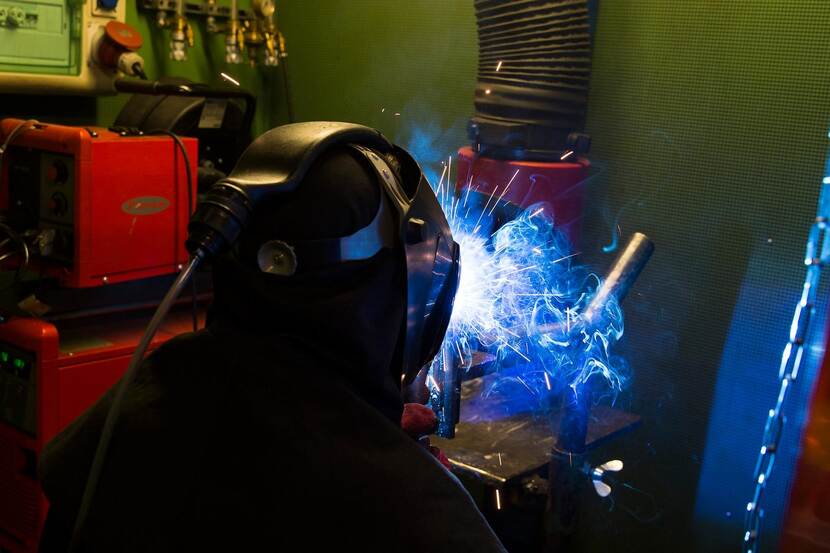Empowering youth through welding training and job placements in Kenya
To prepare young refugees for the labour market in Kenya, they are trained in industrial welding skills. This training is funded by the Ministry of Foreign Affairs.

Turkana County is one of Kenya’s most marginalized areas, with difficult socio-economic conditions that include food insecurity, limited access to basic social services, limited economic infrastructure, and poor livelihood opportunities. The county is home to Kakuma refugee camp and the Kalobeyei integrated settlements, with a population around 197,000 refugees according to the latest figures from UNHCR. The refugees, as well as the host communities, are struggling to find sustainable ways to make a living.
The Turkana County Government in the north of Kenya, in collaboration with the Kenya Association of Manufacturers (KAM) and the East African Institute of Welding (EAIW), will therefore offer a five-month industrial welding skills training to youth from the refugee and host communities. The training is funded by the Ministry of Foreign Affairs of the Netherlands through the PROSPECTS partnership. In line with the objectives of PROSPECTS, the training will also strengthen the joint capacity of KAM, EAIW and the Turkana County Government to design, coordinate and implement blended dual training programmes.
Practical skills
The aim of the training is to prepare refugees and members of the host communities for the labour market by ensuring that they have skills that are in demand, and that these skills are recognized and certified. It is also meant for them to prepare themselves for self-employment and to acquire the entrepreneurial skills to become job creators. The training, which is the first of its kind, will incorporate a blended training approach with an emphasis on practical work. The fact that training is pursued jointly by employers and training providers means that it is more attractive, as it strengthens the link between supply and demand that is needed to boost the transition from training to employment. At the end of the programme the trainees will receive nationally recognized certificates aligned to the qualification framework and standards of Kenya.
Empower youth
Owing to the government infrastructure projects planned, as well as the oil and gas exploration that is ongoing in these counties (including the construction of a pipeline), it is predicted that industrial welding skills will be in high demand, especially from the local communities.
“We look for ways to empower youth from marginalized communities with practical skills that will help them to transition into wage employment or self-employment at a standard that is relevant and appreciated by industry locally and regionally", says Malcolm Marega, Principal at East African Institute of Welding.
For more information, please check out ILO’s work in Kenya under the PROSPECTS partnership.